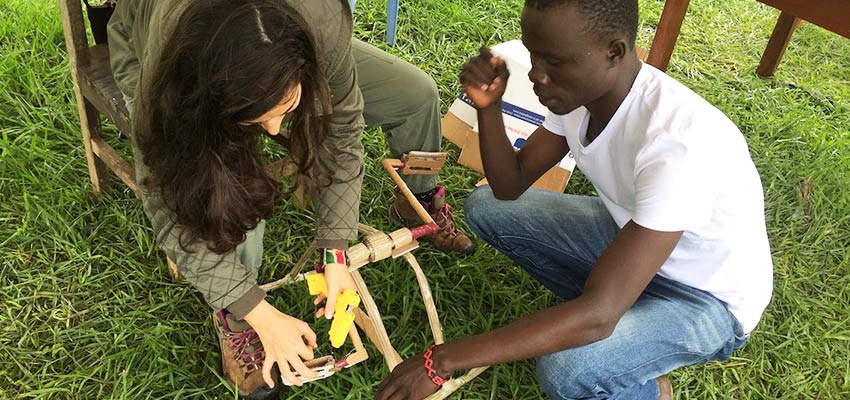
Design for relief, recovery, and rebuilding
The world is facing an unprecedented humanitarian crisis, with 110 million people forcibly displaced by conflict, violence, or persecution. Available resources are heavily strained and organizations urgently need creative solutions to provide basic needs to this population.
Put your skills to use to help people in those situations in the D-Lab: Humanitarian Innovation class. The class provides the background and opportunity for students to work with people affected by war, conflict, and natural disasters to use innovation and design to improve their lives.
This class focuses on approaches to humanitarian innovation that bring the experience, skills, and talent of refugees and displaced people into the innovation process. Specifically, the class provides a solid grounding in:
- The history of humanitarian work, overall structure, key challenges, and the current situation in the sector. sector,D-Lab’s design process
- Participatory design techniques
- The evolution of humanitarian innovation
The class will include hands on design projects and activities and will cover specific situations of protracted displacement and responses in the Sahel, Ethiopia, Uganda, South Sudan, Ukraine, Jordan, and other humanitarian sites Using methodologies developed at D-Lab to promote co-creation and refugee-led innovation, the class will explore mechanisms for building local innovation ecosystems that engage people affected by crisis in the design of solutions that impact their lives. Following the class, students will have an opportunity to travel to Uganda over MIT's Independent Activities Period (IAP) in January to work with D-Lab partners in the Rhino Camp and Imvepi Refugee Settlements.
The class is open to both undergraduate and graduate students (those who are taking the graduate version must complete an additional assignment).
The class meets at from 1pm-3pm on Mondays and Wednesdays in MIT Room N51-305 and is taught by D-Lab Founding Director Amy Smith and Humanitarian Specialist Martha Thompson who lead the MIT D-Lab Humanitarian Innovation program.

